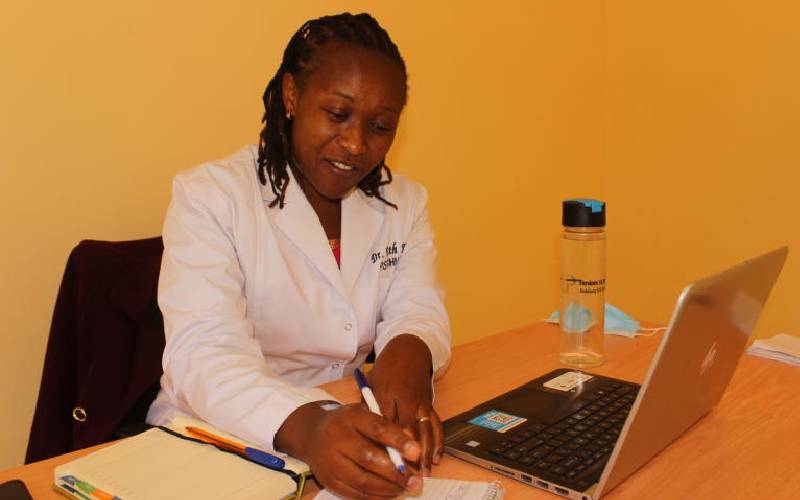×
The Standard e-Paper
Smart Minds Choose Us

Psychiatrist Edith Kwomba during an interview with 'The Standard' at MTRH, Eldoret. September 2021. [Courtesy]
People who suffer persistent headaches should be tested for mental health, according to a psychiatrist who laments that the stigma attached to it has seen many being diagnosed at advanced stages.